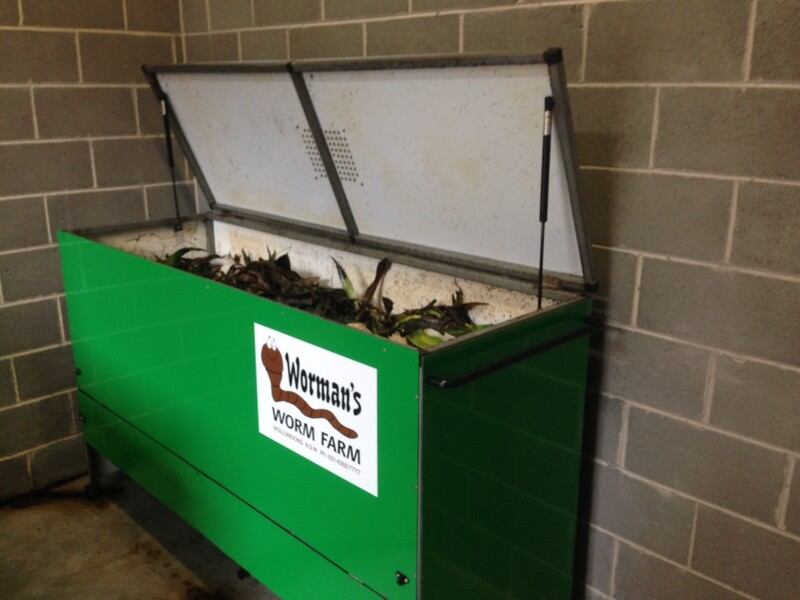Leussink can create customised worm farms using three types of composting worms; Tiger, Indian Blues and Red Wrigglers that devour paper, food scraps, cardboard and any other organic based material.

Reduces running costs
Jason Leussink, director, Leussink, told FoodProductionDaily, Global Worming paves the way for the food handling and processing sectors to do something positive with their waste during processing and packaging.
“Food processing and handling companies now have a way of handling leftover organic matter which reduces their running costs, creates a potentially new income stream and lends itself to large scale recycling initiatives,” he said.
“Leussink is lucky enough to have a healthy core business (engineering and manufacture) and our divisions such as Global Worming work simultaneously to feed an emerging industry demand. There is an excellent crossover as we are perfectly equipped to size and design as well as manufacture a customised worm farm for any level of demand.
“In the next five years, there will be a growing push to stop throwing away leftover food and ingredients that remain from processing. Even a lot of food packaging can be consumed by composting worms on a commercial scale.”
Leussink added unlike burrowing earthworms that aerate the soil, composting worms are surface dwellers which have a self-regulating system: if there is a rise in the quantity of waste which they are processing, they will reproduce in numbers. By contrast, if the rate of waste slows, the worms will cannibalise and reduce their own quota accordingly.
He said whereas before all the paper, cardboard and other recyclable waste used to go to council pick-up and collection points for landfill, the worm farm will devour the waste turning it in a useful by-product.
Food production waste
Talking about how he came up with the idea for an industrial worm farm, Leussink said the company has its roots in the engineering and fabrication sector but a random challenge saw a crossover to develop its business, utilising food production waste and scraps.
“A small component of our business is building multi-occupancy dwellings that combine small retail/commercial with residential situated above. As the builder/developer, the onus was on our company to maintain a 5-star energy rating across all aspects of the building’s expected day-to-day energy usage,” he said.
“After considering all the clichés and the obvious, such as air conditioning, glass density, solar gains and inverted electricity, we challenged ourselves to think outside the box. We took into consideration the relatively high cost and frequent pick-up and removal of the large dumpsters fully laden with rubbish (both recyclable and not) and realised organic waste didn’t even need to be carted away when it could be turned into rich compost.
“Whereas our stronghold used to be in the provision of manufacturing and engineering services to the steel industry, we have now grown into rolling mill refurbishment, security and the food production sector in the area of waste handling and re-use through our Global Worming Division.
“Why throw what’s left into general waste and landfill of which third party disposal is costly when you could easily put into customised composting worm units which turns this matter into a nutrient-rich resource that can be on-sold or used for fertilizing the company site or even community areas.”
As a company in the business of ‘making things’, Leussink said his greatest challenge is to survive and thrive in a country which has a highly paid labour economy by world standards.
“Without too much warning, industries can become unviable and disappear from this economy and it is up to us to be dynamic enough to absorb new opportunities and challenges as they come,” he added.
“Exporting is a major challenge, but it’s more a case of having to break through psychological blocks rather than economic ones.”
